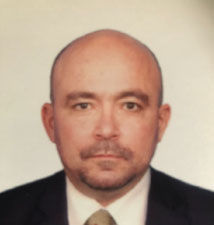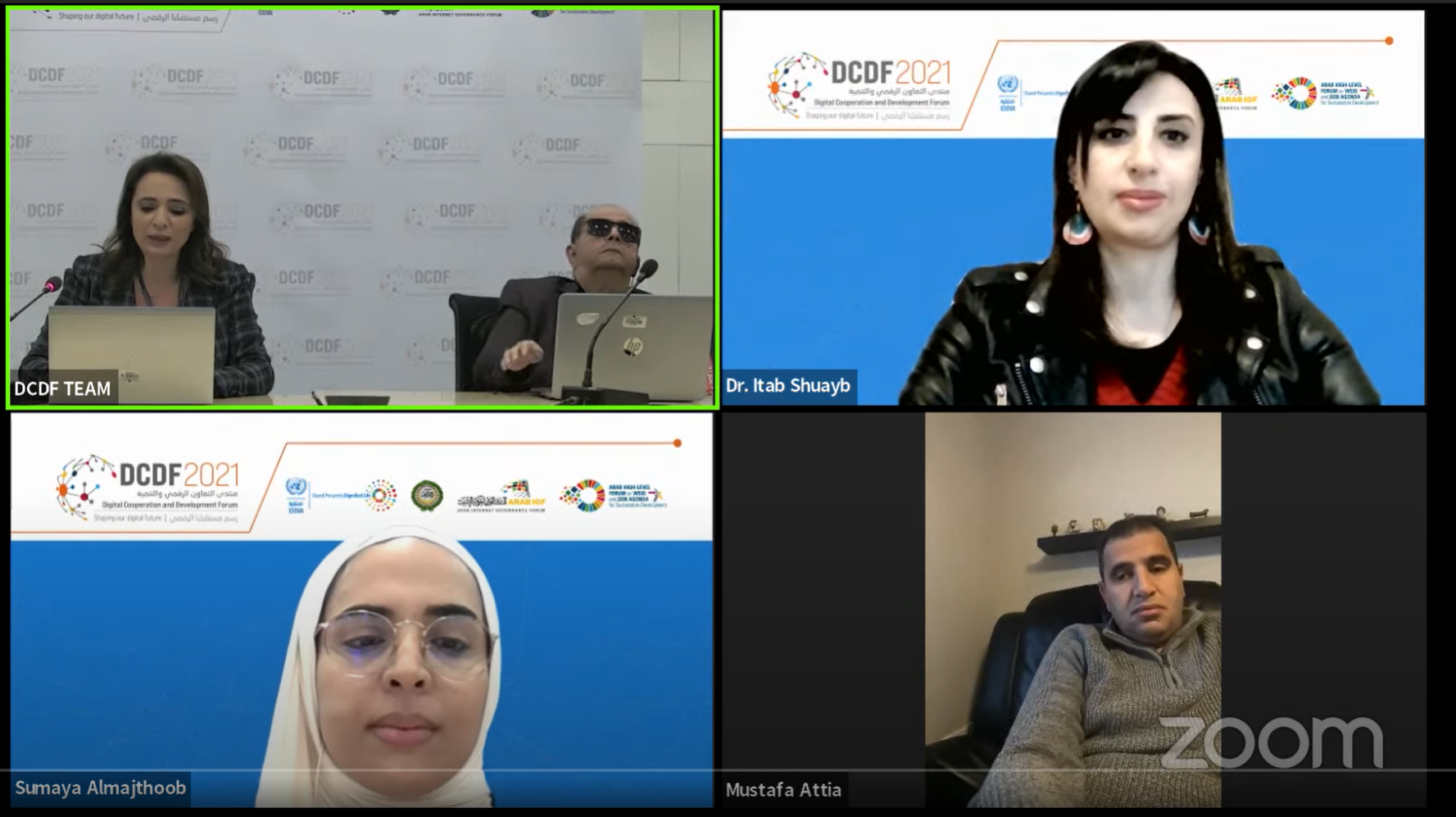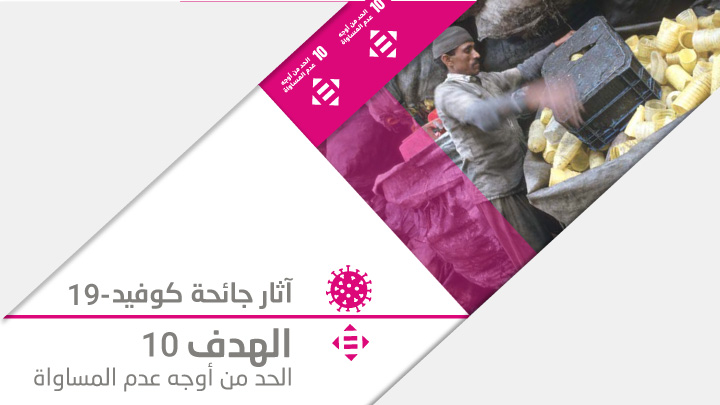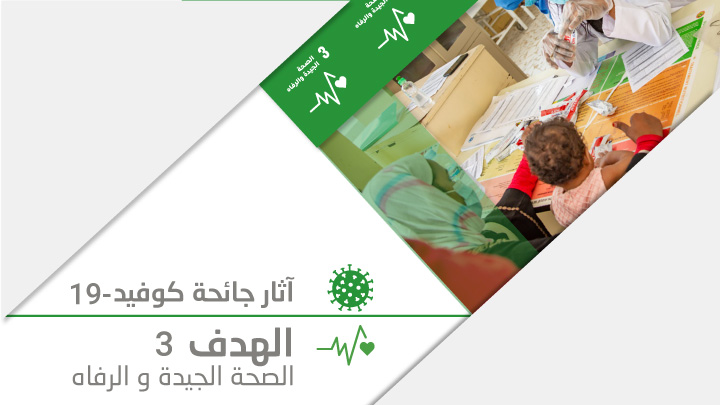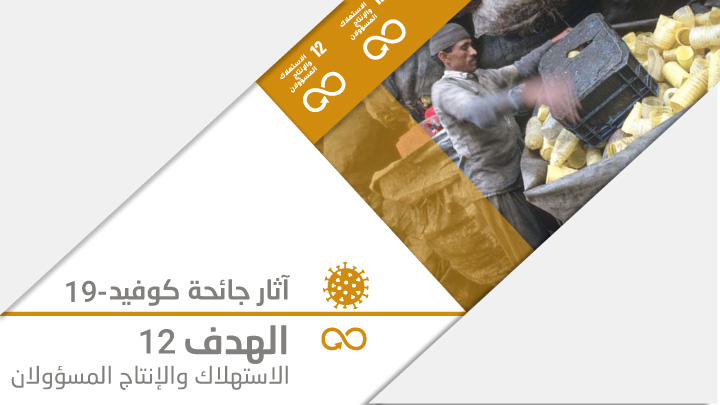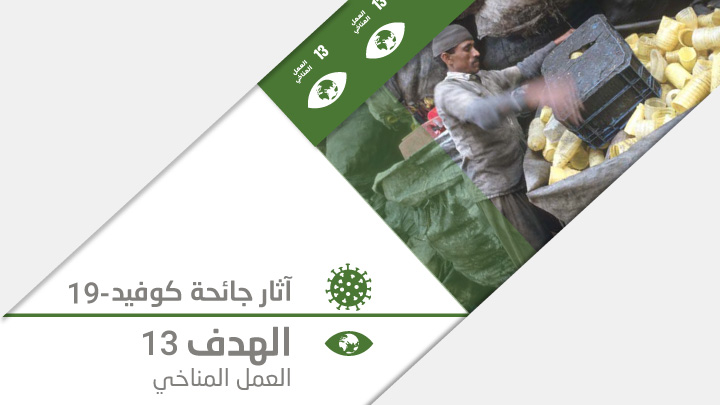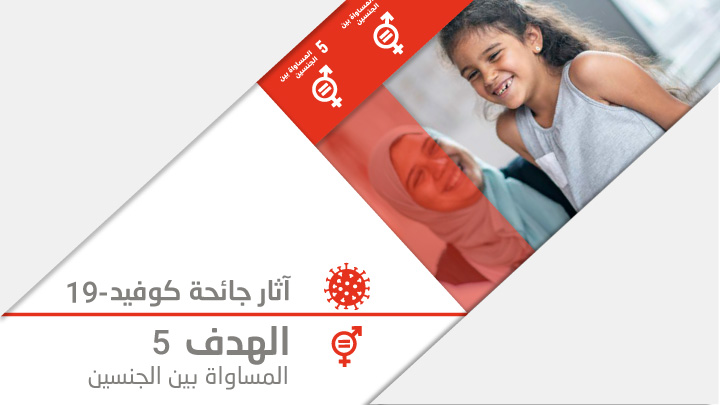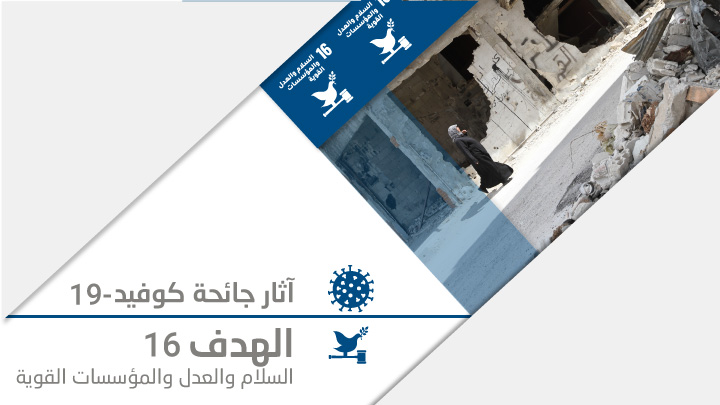13-23 December
Virtually via ZOOM
Overview
The Economic and Social Commission for Western Asia (ESCWA), in collaboration with the League of Arab States and a number of major players in the World Summit on the Information Society (WSIS) and Internet Governance Forum (IGF) processes, including the International Telecommunication Union (ITU), the United Nations Conference on Trade and Development (UNCTAD), the United Nations Department of Economic and Social Affairs (UNDESA) and the United Nations Educational, Scientific and Cultural Organization (UNESCO), is organizing the inaugural edition of the Arab International Digital Cooperation and Development Forum 2021 (DCDF-2021), under the slogan of “shaping our digital future”.
This inaugural edition of DCDF-2021 adopts a progressive consolidation approach that strengthens collaboration among major players in the WSIS and IGF processes to collectively think on how to shape the digital future cooperation in light of the latest UN SG Report on “Our Common Agenda” 2021 and his “Roadmap on Digital Cooperation” 2020 and other UNGA resolutions related to the WSIS process.
The event offers an inclusive streamlined multipartite regional collaboration platform for all stakeholders, bringing together high-level government representatives engaged in digital cooperation and development, civil society networks and organizations, a wide range of regional and international institutions, the private sector, regional experts, and academic and research institutions to convey priority issues of concerns to the global community as well as to the Arab region in the fields of digital development and digital cooperation to relevant global fora.
1. Daily Schedule
2. PRE-EVENTS
Date and time (Beirut Time – UTC+2)
Tuesday, 7 December 2021, 16:15 - 17:15
Organized By IGF Poland
Format: ZOOM
Description
The United Nations Economic and Social Commission for Western Asia (UNESCWA) is delighted to invite you to take part in its Open Forum on Digital Cooperation in the Arab Region, being organized in a hybrid mode in the context of the global IGF2021 (IGF Open Forum #68), on Tuesday, 7 December 2021, 4:15-5:15pm (Beirut Time) and as a pre-event of the Arab International Digital Cooperation and Development Forum, DCDF-2021*.
UNESCWA Open Forum on Digital Cooperation is intended to gather relevant stakeholders and groups to discuss evolving global processes on digital cooperation and internet governance to brainstorm on selected regional and national policies to advance internet governance and digital cooperation in the Arab region.
● The Open Forum will discuss the evolving global processes on global digital cooperation and internet governance, with a focus on their regional implications, the progress in the development of the Arab Digital Agenda/ICT Strategy, as well as the National and Regional Digital Development Reviews will be presented as the knowledge-production side of the Digital Development track of UNESCWA integrated work on Digital Cooperation and Digital Development; while the Digital Cooperation track is manifested in an innovative consolidation of the Arab IGF process with the Arab WSIS process under the composite notion of Digital cooperation and Development Forum (DCDF).
● The Open Forum will also shed light on the preparation of the Sixth Annual Meeting of the Arab Internet Governance Forum (Arab IGF-VI) as part of the inaugural edition of the Arab International Digital Cooperation and Development Forum (DCDF), scheduled to take place virtually from 13 to 23 December 2021. In addition, the Open Forum will discuss selected key messages captured from the opening session of the IGF-16 of Poland in the morning of the same day; as well as messages issued from National IGF initiatives, such as the Lebanese IGF.
We look forward to your participation in person in Poland or online.
● Together, let us shape our digital future!
Venue
● Online
● In-person, Ballroom C, International Congress Center, Katowice, Poland
Online Moderators
● Mr. Ayman El-Sherbiny, Chief of ICT Policies, UNESCWA
● Ms. Mirna El Hajj Barbar, Programme Management Officer, UNESCWA
Onsite Moderator
● Mr. Ibaa Oueicheck, Adviser to the Minister of Communications and Technology, Syrian Arab Republic
Speakers
● Mr. Charles Sha'ban, Arab Multistakeholders Programme Advisory Committee (AMPAC), Arab IGF
● Mr. Qusai AlShatti, International Expert on Internet Governance, Former Chair of the Inaugural Arab IGF 2012 and Strategic Partner to Arab IGF 2020, Kuwait
● Ms. Fatna El Farsi, General Engineer, Ministry of Digital transition and Administrative Reform, Rabat, Morocco
● Mr. Hosein Badran, Director, Internet Growth and Trust, Internet Society
● Ms. Zeina Bou Harb, Head of International Cooperation, OGERO Telecom, Lebanon
● Mr. Mansour Farah, International Expert in Technology for Development, Syrian Arab Republic
List of Biographies download
Date and time (Beirut Time – UTC+2)
Monday, 13 December, 10:00 - 11:15
Organized by UNESCWA
Format: ZOOM
Description
Disruptive changes in the workplace brought by the fourth industrial revolution - 4IR have delivered mixed signals. It is still unclear whether new work modalities worsen, reduce or sustain existing gendered inequalities or the demand of youth employment. In the Arab world unprecedented economic opportunities have been created for Arab women, however, gender discrimination in employment remains widespread. The unemployment rate among Arab women was 20% percent in 2019 compared to a rate of only 7.8% percent among Arab men. For this reason, we tested how sensitive demanded jobs are to gender equality and to youth employment. This session will focus mainly on employment inclusiveness based on demanded jobs in various countries in the Arab region.
Lecturer
● Mr. Salim Araji, Economic Affairs Officer, UNESCWA
Discussant
● Mr. Ali Fakih, Associate professor, Lebanese American University, Lebanon
List of Biographies download
Information Note download
Date and time (Beirut Time – UTC+2)
Monday, 13 December, 12:00 - 13:15
Organized by UNESCWA Technology Centre (ETC)
Format: ZOOM
Description
The session will discuss the financial challenges that Young Innovators and Entrepreneurs face starting their projects. And elaborate on the economic opportunities across the Arab region and internationally.
Moderator
● Mr. Kareem Hassan, Executive Director of the UNESCWA Technology Center for Development (Jordan)
Speakers
● Mr. Ayman El-Sherbiny, Chief of ICT Policies, UNESCWA
● Mr. Gabriel Petrus, Deputy Director for Global Partnerships & Development at the International Chamber of Commerce (ICC), Paris
● Ms. Joelle Yazbeck, Executive Coordinator for the Beirut-based ICC-UNESCWA Center of Entrepreneurship for the MENA region
● Ms. Loraine Salza, Research Assistant, UNESCWA
● Ms. Blanka Smítková, Research Assistant, UNESCWA Technology Centre
List of Biographies download
Information Note download
Date and time (Beirut Time – UTC+2)
Monday, 13 December, 14:00 - 15:15
Organized by Arab IGF Community
Format: ZOOM
Description
This session will be conducted as a tutorial highlighting the following:
● Background and History on the genesis of Internet Governance;
● Updates and recent developments in the last two years related to the IGF global process, with a focus on the latest updates from IGF 2021 in Poland;
● Presentation of the Arab IGF Activities.
Co Moderators
● Mr. Qusai AlShatti, Former Chair of the Inaugural Arab IGF 2012 and strategic partner to Arab IGF 2020, AMPAC
Ms. Mirna El Hajj Barbar, Programme Management Officer, UNESCWA
Speakers
● Mr. Ibaa Oueicheck, Adviser to the Minister of Communications and Technology, Syrian Arab Republic
● Ms. Anja Gengo, Associate Programme Expert/National and Regional IGF Initiatives Focal Point
List of Biographies download
Information Note download
presentation download
3. High-Level Inaugural Session
Opening Ceremony
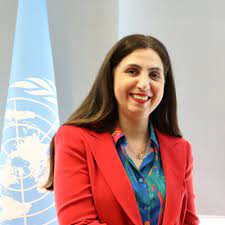
Dr. Rola Dashti
Under-Secretary-General of the United Nations and Executive Secretary of the Economic and Social Commission for Western Asia (ESCWA)
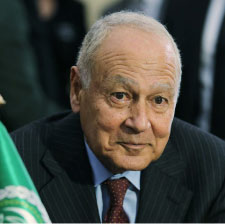
H.E. Mr. Ahmed Aboul Gheit
Secretary-General, the League of Arab States (LAS)

Ms. Rebeca Grynspan
Secretary-General, United Nations Conference on Trade and Development (UNCTAD)
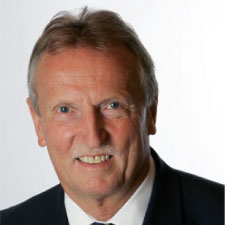
Mr. Malcolm Johnson
Deputy Secretary-General, International Telecommunication Union

Mr. Liu Zhenmin
Under-Secretary-General United Nations Department of Economic and Social Affairs
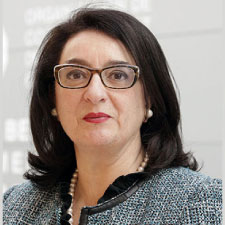
Ms. Maria-Francesca Spatolisano
Assistant Secretary-General for Policy Coordination and Inter-Agency Affairs, Department of Economic and Social Affairs (DESA) and Officer-in Charge of the Office of the Envoy on Technology

Dr. Tawfik Jelassi
Assistant Director-General for Communication and Information, United Nations Educational, Scientific and Cultural Organization (UNESCO)
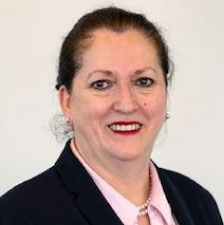
Ms. Khalida Bouzar
UN Assistant Secretary-General, UNDP Assistant Administrator, Director of the UNDP Regional Bureau for Arab States, UNDP
High-Level Policy Dialogue
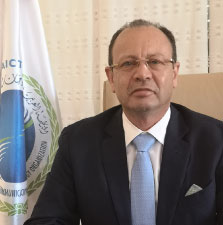
Mr. Mohamed Ben Amor
Secretary General, Arab Information and Communication Technologies Organization, AICTO, Tunis
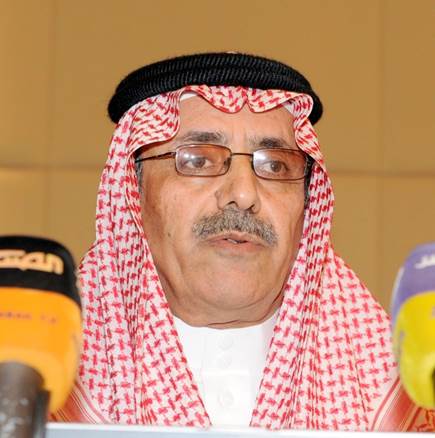
Dr. Nasser Al Qahtani
General Director, Arab Administrative Development Organisation
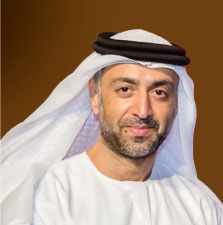
Dr. Ali M. Al-Khouri
Chairman, Arab Federation for Digital Economy, AFDE, United Arab Emirates
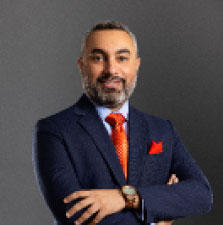
Mr. Adel Darwish
Arab regional Office Director, International Telecommunication Union
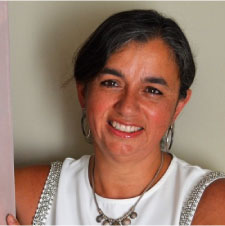
Ms. Christine Arida
Strategic Planning Sector Head and Board Member National Telecom Regulatory Authority of Egypt
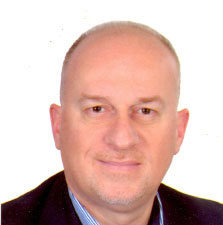
Mr. Charles Shaaban
Chairman, Arab Multistakeholders Programme Advisory Committee (AMPAC), Arab IGF and Executive Director of Abu-Ghazaleh Intellectual Property, Jordan
High-Level Inaugural Session and Policy Dialogue
Host and Moderator
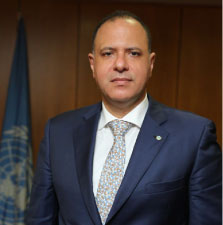
Mr. Ayman El-Sherbiny
Chief of ICT policies, Digital Cooperation and Development; UNESCWA
DCDF-2021: Interview with Mr. Ayman El-Sherbiny
4. Arab IGF Sessions
Plenary Sessions
Date and time (Beirut Time – UTC+2)
Tuesday, 14 December, 14:00 - 15:15
Organized by Arab IGF AMPAC - Special Task Force (STF)
Format: ZOOM
Description
This session will pave the way for discussing the Arab region hot issues and priorities in the area of Internet governance, aiming to crystallize, by the end of this forum, the features of the proposed mechanism for framing Internet governance tracks, enhancing digital cooperation and promoting sustainable development in the Arab region for the next nine years.
Moderators
● Mr. Ayman El-Sherbiny, Chief of ICT policies, UNESCWA
● Mr. Qusai AlShatti, Former Chair of the Inaugural Arab IGF 2012 and strategic partner to Arab IGF 2020, AMPAC
Speakers
● Mr. Chengetai Masango, Programme and Technology Manager, United Nations Secretariat for the Internet Governance Forum
● Ms. Christine Arida, Executive Director for Telecom Services Planning, National Telecom Regulatory Authority (NTRA), EGYPT
● Ms. Wafa Al Dahmani, Director of IT Emergency Response and Support, Agence Nationale de la Sécurité Informatique, Tunis
● Mr. Walid Al Saqaf, Senior Lecturer, Södertörn University, Sweden
● Ms. Zeina Bouharb, Head of International Cooperation at OGERO Telecom, Lebanon
List of Biographies download
Information Note download
Date and time (Beirut Time – UTC+2)
Wednesday, 15 December, 12:00 - 13:15
Organized by Arab IGF AMPAC - Special Task Force (STF)
Format: ZOOM
Description
In line with SDG 9, countries in the Arab region should devise universal internet access policies that allow affordable access to quality broadband services, facilitate digital inclusion, including the development of digital skills, access for women and persons with disabilities, and availability of relevant content and applications.
The main challenges to achieving the goals of meaningful access in the context of digital transformation revolve around three axes:
1. Networking and connectivity challenges associated with financing and expanding broadband infrastructure.
2. Pricing/cost barriers that limit the uptake of digital services due to low purchasing power compared to high prices of services and end-user devices.
3. Challenges to Internet inclusiveness, which require eliminating digital divides, facilitating access to the internet, developing digital skills, addressing gender disparities and accessibility of services for people with disabilities, and encouraging the development of digital content locally.
Moderator
● Mr. Haidar Fraihat, lead of the Statistics, Information Society and Technology Cluster, UNESCWA
Speakers
● Mr. Imad Kreidieh, Chairman and Director General, OGERO, Lebanon
● Ms. Leila Serhan, Senior Vice President and Group Country Manager (NALP), Visa
● Ms. Nermine El Saadany, Regional Vice-President-Middle East, ISOC
● Mr. Marco Brandstaetter, Business Development Manager former Regional Director Middle East and South Asia, DE-CIX
● Mr. Houssine Saf, Member of l'APEBI. (Fédération des professionnels du Digital and MAG Member of NAIGF - North Africa Internet Governance Forum, Morocco
List of Biographies download
Information Note download
Date and time (Beirut Time – UTC+2)
Thursday, 16 December, 12:00 - 13:15
Organized by Arab IGF AMPAC - Special Task Force (STF)
Format: ZOOM
Description
The session will attempt to shed light on some of the issues pertaining to the legal environment and regulatory policies and procedures to drive technological advancement, network security, data protection, and privacy,trying to answer the following questions:
● To what extent are Arab governments able and prepared to set appropriate policies and regulatory frameworks to keep pace with new digital trends?
● How can Arab telecom regulators balance putting in place policies to protect networks and citizens while keeping people connected and allowing digital innovation to flourish?
● What are the obstacles that prevent working with a joint collaborative approach to create a flexible regulatory and legislative environment that is in line with the new priorities of governments and the private sector and supports innovation?
● How can an enabling policy and regulatory environment be created to connect the unconnected to support the achievement of sustainable development goals and progress towards the digital economy?
● What are the prospects for international cooperation to develop joint policies to keep pace with technical developments and protect users at the same time?
Moderator
● Ms. Manal Ismail, Chief Expert Internet Policies, National Telecom Regulatory Authority (NTRA), Egypt
Speakers
● Mr. Belal Al-Hafnawi, Commissioner, Board Member at Telecommunications Regulatory Commission (TRC-Jordan), Jordan
● Mr. Chawki Chihi, Director General, Ministry of Communication Technologies, Tunis
● Mr. Mohamad Hegazy, Senior Advisor for Public Policy & Regulatory Affairs, Moharram and Partners for Strategic communications and Government Affairs, Egypt
● Mr. Chafic Chaya, Market Communications Manager, RIPE NCC
● Mr. Charbel Chbeir, Attorney and Consultant in Cybersecurity, Beirut Bar Association, Lebanon
List of Biographies download
Information Note download
Date and time (Beirut Time – UTC+2)
Monday, 20 December, 12:00 - 13:15
Organized by Arab IGF AMPAC - Special Task Force (STF)
Format: ZOOM
Description
To help create economic value, especially emerging economic values, the adoption of digital identity becomes an important factor for GDP potential growth, as it opens access to banking, government, education, healthcare, and many other important services.
However, this has led to the emergence of new challenges due to the negative domination of giant technology companies on global markets, which is detrimental to competition with emerging or smaller companies. The session seeks to discuss the aforementioned problematic issues with a focus on digital transformation and digital economy.
Moderator
● Mr. Ashraf Abdel Wahab, Digital Transformation Director, Public Sector, SAP
Speakers
● Mr. Lasfar Noureddine, Head of the Department of Digital Transformation of the Society at the Digital Development Agency (ADD), Morocco
● Mr. Tawfiq abu-baker, policies and strategies deputy director at the Ministry of Digital economy and entrepreneurship
● Mr. Ahmed Khaouja, Director, PTT Maroc and LTE.MA, Morocco
● Mr. Rudy Shoushany, Founder Producer and Host, DxTalks, Lebanon
List of Biographies download
Information Note download
Date and time (Beirut Time – UTC+2)
Tuesday, 21 December, 12:00 - 13:15
Organized by Arab IGF AMPAC - Special Task Force (STF)
Format: ZOOM
Description
The session attempts to debate some of the most important concerns about the subject, by reflecting on the following:
● Internet repercussions on imposing social, mental and cognitive human and social challenges in the digital era.
● Patterns and nature of digital addiction, mental and psychological health, and cognitive uncertainty/confusion.
● Humanitarian challenges (at the individual level).
● Distance learning and telework applications’ impact on the psychological and health dimensions of children and adolescents.
● Social challenges (family and community) and remote learning and remote work applications’ impact on the psychological and health dimensions of children and adolescents.
● Security challenges (at all levels).
● The role of governments, civil society and all stakeholders, especially youth, in facing emerging humanitarian challenges.
● The future of humans - digitization relationship.
● Immersion in the digital world and life and social interactions balance, especially considering social distancing policies imposed by COVID-19 and the ensuing new normal.
● Private sector, global platforms and public service broadcasters’ joint efforts to fight/prevent misinformation, disinformation and hate speech.
● The role of Artificial Intelligence and machine learning in Disinformation and AI program autonomy to make decisions about data / information that could influence human decision making.
Media literacy and public interaction with news and information.
Moderator
● Mr. Ahmad Farag, Senior Specialist, WSIS Affairs Planning and Telecom Services, National Telecom Regulatory Authority, Egypt
Speakers
● Ms. Saloua Karki, President, Inetum Africa , Morocco
● Mr. Adel Abdel Sadek, Technical/Academic, Ahram center for political and strategic studies, Egypt
● Ms. Tina Purnat, Team Lead global infodemic management efforts, WHO
● Mr. Idriss Hani, Member of the advisory committee, Dar Al Hikma Canadian University, Morocco
● Mr. Hisham Ramy, MD, PHD, Coordinator of the Egyptian Board of Psychiatry & Secretary General of the Egyptian Psychiatric Association
● Ms. Leila Mnekbi, National Coordinator & Digital Safety Advocate, Tunisia
List of Biographies download
Information Note download
Workshops
Date and time (Beirut Time – UTC+2)
Tuesday, 14 December, 16:00 - 17:15
Organized by ICANN
Format: ZOOM
Description
This workshop attempts to shed light on ongoing developments on the regulatory and technology aspects in relation to the Internet and the potential impact of such new regulations and technologies on the single global Internet used by billions of users around the world.
Moderator
● Mr. Baher Esmat, Vice President for Stakeholder Engagement in the Middle East, and Managing Director for the Middle East and Africa (MEA) Regional office, ICANN
Speakers
● Ms. Emily Taylor, CEO, Oxford Internet Labs
● Mr. Adiel Akplogan, Vice President of Technical Engagement, ICANN
● Mr. Moustafa Moharram, Founder and CEO, Moharram & Partners for Public Affairs and Strategic Communications
● Ms. Elena Plexida, Vice President of Government and IGO Engagement, ICANN
List of Biographies download
Information Note download
Date and time (Beirut Time – UTC+2)
Wednesday, 15 December, 10:00 - 11:15
Organized by Internet Society ME
Format: ZOOM
Description
This high-level meeting aims to highlight the need for innovative ways for connectivity in MENA and the beneficial policies that can create an enabling environment for them. it will set the scene through:
● Shedding light on examples for popular innovative connectivity models; case study from another region;
● Introducing Community Networks and how they could be developed; What Challenges do community networks face:
- Technical Challenges;
- Policy and Regulatory Challenges.
Join the next session
Moderator
● Mr. Michael Kende, Senior Advisor at Analysys Mason; Digital Development Specialist, IFC
Keynote Speaker
● Mr. Walid Mathlouthi, Head of Future Network & Spectrum Management Division at International Telecommunication Union, ITU
Speakers
● Mr. Ayman El-Sherbiny, Chief of ICT policy - UNESCWA
● Mr. Juan Peirano, Senior Policy Advisor – Internet Society
● Ms. Marwa Azelmat, Women's rights policy advocacy coordinator, APC, Morocco
● Mr. Sharaf Azzain, Entrepreneur and Founder of Ultimate STC - President of Internet society Yemen chapter
List of Biographies download
Information Note download
Date and time (Beirut Time – UTC+2)
Wednesday, 15 December, 16:00 - 17:15
Organized by Internet Society ME
Format: ZOOM
Description
This high-level meeting aims to highlight the need for innovative ways for connectivity in MENA and the beneficial policies that can create an enabling environment for them. It will highlight on the issues Related to Lack of Access to Spectrum & Infrastructure:
● How to enable the regulatory environment to sustain a Community Network;
● Financial and Sustainability Challenges;
● Country case study from the region.
Moderator
● Mr. Hanna Kreitem, Technical Expert Middle East – Internet Society
Keynote Speaker
● Ms. Martha Suarez, President at Dynamic Spectrum Alliance (DSA)
Speakers
● Mr. Guillaume LEBRUN, Global Connectivity Policy – Facebook
● Mr. Carlo Maria Rossotto, Principal Investment Officer, Global Head, Upstream Telecom Media and Technology (TMT), Infrastructure at IFC
● Mr. Joao Paulo de Vasconcelos Aguiar, Communications and Outreach Manager for Latin America, Internet Society
● Mr. Massimiliano Stucchi, Technical Advisor for the European Bureau, Internet Society
List of Biographies download
Information Note download
Date and time (Beirut Time – UTC+2)
Monday, 20 December, 10:00 - 11:15
Organized by Arab Information & Communication Technologies Organization (AICTO) and ICANN
Format: ZOOM
Description
Universal Acceptance'' (UA) is an effort to address potential user issues and obstacles observed in the use of new Top-Level Domains, including Internationalized Domain Names (IDNs). Despite the availability of domain names and their corresponding email addresses in local languages and scripts, such as Arabic, their acceptance (i.e., usability) is not well supported by current software and applications. Analysis for universal acceptance (published at UASG.tech [uasg.tech]) shows that only about 11% of the top global websites would accept email addresses in Arabic as valid, and only about 7% of the email servers will receive an Arabic email address. All the remaining websites and email servers reject Arabic email addresses. The session will explore the role different stakeholders, including web developers, email system administrators, top-level domain registries and registrars, community, and the government, should play to address UA. For until UA is achieved across the board, the Internet is not accessible to everyone.
Moderator
● Mr. Fahd Batayneh, Stakeholder Engagement Sr. Manager, ICANN, Middle East
Speakers
● Mr. Abdelmonim Galilla, Universal Acceptance Steering Group (UASG) Vice-Chair and Universal Acceptance (UA) Ambassador
● Mr. Nabil Benamar, Chair Measurement Working Group Chair, universal Acceptance Steering Group (UASG)
● Mr. Sami Triemech, Director of Strategic Planning and development, Arab Information & Cooperation Technologies Organization (AICTO)
List of Biographies download
Information Note download
Date and time (Beirut Time – UTC+2)
Tuesday, 21 December, 10:00 - 11:15
Organized by RIPE NCC
Format: ZOOM
Description
Learning more about the Internet has become even more essential today when the demand for connectivity has been accelerated by the isolation caused by COVID-19. Today, the Internet is essential for education, work, and staying connected with family and friends.
This session, under the Arab IGF track, will delve deeper into how the Internet works, offering valuable information about the fundamentals of Internet governing organisations, Internet protocols and the Domain Name System. It clearly lays out the basics of the Internet in a simple and interesting way for young people and undergraduates.
The session also looks at the different training and education initiatives the RIPE NCC offers. This includes the RIPE NCC Academy which is a free online learning platform and Certified Professionals, where people can showcase their expertise by passing exams and getting certified.
Youth and undergraduates will be more comfortable using the Internet after attending this interactive session. They will be able to hold meaningful discussions, not only socially but also with technicians and computer experts.
Moderator
● Mr. Chafic Chaya, Regional Communications Manager, RIPE NCC, UAE
Speakers
● Ms. Gergana Petrova, External Relations Officer, RIPE NCC, Netherlands
● Mr. William Johnson, Instructional designer, RIPE NCC, Netherlands
List of Biographies download
Information Note download
Date and time (Beirut Time – UTC+2)
Tuesday, 21 December, 16:00 - 17:15
Organized by IGF Policy Network on Environment (PNE)
Format: ZOOM
Description
This interactive multi stakeholder dialogue will outline some of the key opportunities and challenges digitalisation brings to environmental sustainability. Building on the outputs of the IGF 2021 policy network on environment, this workshop will especially look into the role of open and big data for environment, food and water systems and supply chain transparency and circularity aspects.
Moderator
● Ms. Anja Gengo, Associate Programme Officer, United Nations Secretariat for Internet Governance Forum
Speakers
● Ms. Flurina Wäspi, IGF Secretariat’s consultant for IGF Policy Network on Environment
● Mr. David Oehmen, Member of the IGF Policy Network on Environment and Associate Programme Officer - Digital strategies and innovation, UNFCCC
● Mr. Hossam Allam, Regional Director of Sustainable Growth CEDARE - Centre for Environment and Development for the Arab Region & Europe
List of Biographies download
Information Note download
5. Arab WSIS Sessions
Plenary Sessions
Date and time (Beirut Time – UTC+2)
Wednesday, 15 December, 14:00 - 15:15
Organized by ESCWA and ITU
Format: ZOOM
Description
This session will bring together various stakeholders and experts from different sectors to discuss how ICTs and the WSIS Action Lines can help accelerate the SDGs and focus on strengthening partnerships and digital cooperation towards achieving goals and targets across the 2030 Agenda for Sustainable Development.
It will also highlight the implementation of the WSIS Action Lines that contribute to the achievement of the SDGs in the Arab region.
Moderator
● Ms. Gitanjali Sah, Strategy and Policy Coordinator, ITU
Speakers
● Mr. Adel Darwish, Arab regional Office Director, International Telecommunication Union
● Mr. Ayman El-Sherbiny, Chief of ICT Policies, UNESCWA
● Mr. Karim Abdelghani, Programme Coordinator, ITU - Arab Office
● Mr. Joe Hironaka, Programme Specialist Digital Innovation and Transformation Communication and Information Sector, UNESCO
● Ms. Scarlett Fondeur Gil, Economic Affairs Officer, E-commerce and Digital Economy Branch, UNCTAD
● Ms. Minerva Novero-Belec, Policy Specialist, UNDP
● Mr. Michael Hodin, CEO, Global Coalition on Aging (GCOA)
● Ms. Mei Lin Fung, Chair and Co-founder, People Centered Internet
● Ms. Lara Rudar, UN Youth PreCOP26 Delegate
List of Biographies download
Information Note download
Date and time (Beirut Time – UTC+2)
Thursday, 16 December, 14:00 - 15:15
Organized by UNESCWA and ITU ARO
Format: ZOOM
Description
The International Telecommunication Union (ITU) aims to improve the cybersecurity readiness, protection, incident response capabilities and awareness of Member States by conducting CyberDrills at the national, regional, and global level.
The main aim of this session is to
● Bring together the regional cybersecurity community to review major regional cybersecurity trends and consider improvements based on the five pillars of ITU Global Cybersecurity Agenda (GCA) and The Global Cybersecurity Index (GCI).
● Highlight the importance of regional Cooperation whether bilateral or multilateral and its benefits for all member states.
● Strengthen the regional cooperation and keep abreast of current trends, good practices, innovative approaches, lessons learned, and to identify common challenges across regions.
Moderator
● Mr. Ahmed EL Raghy, Senior Advisor, ITU
Speakers
● Mr. Ahmad Mohawish, Cybersecurity Expert, National Cybersecurity Authority (NCA) of the Kingdom of Saudi Arabia
● Mr. Hesham Ragheb, incident response manager at EG-CERT
● Mr. Abdulrazaq Al-Morjan, Executive Director of the Center of Excellence in Cybercrimes and Digital Forensics, Naif Arab University for Security Sciences
● Ms. Wafa Dahmani, Director of IT Emergency Response and Support, Agence Nationale de la Sécurité Informatique, Tunis
List of Biographies download
Information Note download
Date and time (Beirut Time – UTC+2)
Monday, 20 December, 14:00 - 15:15
Organized by UNESCWA and ITU ARO
Format: ZOOM
Description
The partnerships for digital transformation panel aims to highlight the importance of taking a multistakeholder approach in order to achieve digital transformation in the Arab states.
Multi-stakeholder platforms can help build trust and confidence among different actors, as well as provide a forum for finding mutually acceptable solutions and win-win situations. The processes' inclusive and participatory nature is particularly important in the sphere of digital transformation both regionally and globally as it increases the sustainability of the developed solutions. In alignment with the ONE-UN approach, this panel brings together various UN organizations as well as key stakeholders to shed light on their respective digital transformation initiatives in the Arab States and to highlight their complementarity. The session will suggest a multi-stakeholder model that connects the initiatives while accentuating each organization’s strengths. It will also discuss the role of efficient partnerships in achieving the digital transformation agenda in the Arab States while drawing from past successes and reflecting on past failures.
Moderator
● Mr. Karim Abdelghani, Programme Coordinator, ITU Arab Regional Office
Speakers
● Mr. Jean-Marc Faurès, Regional Programme Leader, FAO Regional Office for the Near East, and North Africa
● Mr. Paul Hector, Advisor for Communication and Information in UNESCO’s Regional Bureau for Sciences in the Arab States, UNESCO, Regional Bureau for Sciences in the Arab States
● Mr. Ayman El-Sherbiny, Chief of ICT Policies, UNESCWA
● Mr. Dany Wazen, Digital Transformation Specialist at UNDP RBAS regional programme, UNDP RBAS regional programme.
● Mr. Mohamed Hassan Nour, WHO
List of Biographies download
Information Note download
Date and time (Beirut Time – UTC+2)
Monday, 21 December, 14:00 - 15:15
Organized by UNESCWA and ITU ARO
Format: ZOOM
Description
The United Nations Economic and Social Commission for Western Asia (UNESCWA) and the United Nations Conference on Trade and Development (UNCTAD) are organizing a special session on “E-Commerce, Post-COVID and Beyond: Global and Arab Perspectives” as part of the inaugural edition of the Arab International Digital Cooperation and Development Forum (DCDF 2021).
This event will capitalize on UNCTAD's and UNESCWA work to help countries of the Arab region instituting an enabling environment for leveraging e-commerce and optimizing its economic benefits for all. The session will base the discussion on UNCTAD B2C index main findings and UNESCWA’s interventions to build national capacities for developing impactful national e-commerce strategies, as a guide for policy making in the Arab region in this area.
This plenary session will spot the light on the positive implications of the pandemic on boosting eCommerce and also on the main challenges hindering further implementation of e-commerce in the Arab region, with a focus on E-payment as one of the impediments to e-commerce, both at the technical and legislative level. It will highlight divergent examples from selected Arab countries.
Moderator
● Mr. Ayman El-Sherbiny, Chief of ICT Policies, UNESCWA
Keynote Speaker
● Mr. Khaled Hanafy, Secretary General of the Union of Arab Chambers and Professor of Economics and International Business
Speakers
● Ms. Anne-Katrin Pfister, Programme Management Officer, E-Commerce and Digital Economy, UNCTAD
● Mr. Rabeh Morrar, Director of Research, The Palestine Economic Policy Research Institute (MAS)
● Mr. Ahmed El-Sobky, Founder and Managing Director, ACACIA Integration
● Ms. Rania Sabry, Co-Founder & Business Director, eCartona
● Ms. Rania Sabry, Co-Founder & Business Director, eCartona
● Mr. Tarek AbdelRahim, chief executive officer (CEO), eGlobal
● Mr. Hesham Safwat, chief executive officer (CEO) of the e-commerce platform Jumia, Egypt
● Mr. Ahmed Said, Executive Director, International Policies Vice Chairman, ITU-T SG3, the National Telecom Regulatory Authority (NTRA), B4 Smart Village, Giza.
● Mr. Ali Awdeh, Head of Economic Research, Union of Arab Banks
List of Biographies download
Information Note download
Special Sessions
Date and time (Beirut Time – UTC+2)
Wednesday, 15 December, 10:00 - 11:15
Organized by UN ESCWA
Format: ZOOM
Description
This session will explore the important role accessible information and communication technology can play in ensuring the inclusion of persons with disabilities. It will start by exploring the global frameworks that support e-inclusion, such as Article 9 on Accessibility of the Convention on the Rights of Persons with Disabilities (CRPD). Second, it will explore the interlinkages between research, universities, and industry in driving innovation for social and digital inclusion. Third, examine digital inclusion in the Arab region, some of the challenges and opportunities Arab countries face, especially in the context of the global COVID-19 pandemic. Lastly, it will showcase some of the Arab regional initiatives to support digital inclusion, including UNESCWA’s “Arab Digital Inclusion Platform”.
Moderator
● Ms. Mirna El Hajj Barbar, Programme Management Officer, ESCWA
Speakers
● Mr. Abraham Abdallah, Consultant on Disability, ESCWA
● Ms. Itab Shuayb, Professor of inclusive design at American University of Beirut
● Mr. Mostafa Attia, Researcher and Consultant on Disability, UK
● Ms. Sumaya Almajthoob, Associate Social Affairs Officer, ESCWA
List of Biographies download
Information Note download
Date and time (Beirut Time – UTC+2)
Monday, 20 December, 10:00 - 11:15
Organized by UNESCWA
Format: ZOOM
Description
This session will discuss the intersection of the transport and technology sectors. Indeed, throughout the ages, technology has provided innovative solutions that have transformed and modernized the entire transport sector. The exponential technological progress witnessed today, as well as the diversity of innovative solutions that have been emerging, is expected to transform further the land transport sector, and enhance its efficiency, its safety, and the mobility of people.
The session will show and demonstrate the role of digital technology in improving the land transport sector, by discussing available technologies as well as future trends that could further influence development in this sector. Based on UNESCWA’s survey, the session will also highlight the status of enabling technologies and the most used technological applications in the Arab region.
Based a recently published report by UNESCWA, the session will provide a holistic regional framework for enhancing the integration of technology in land transport considering the provision of appropriate communications infrastructure and the requirements for the safe use of technology, developing the legal and regulatory environment, building capacity and skills development, stimulating innovation to develop road transport services and encouraging better governance of the transport sector.
Moderator
● Ms. Nibal Idlebi, Chief of Innovation Section, UNESCWA
Speakers
● Mr. Mahmoud H. Abdallat, Secretary General of the Arab Union of Land Transport (AULT)
● Mr. Yarob Badr, Regional Advisor on Transport and Logistics, UNESCWA
● Mr. Rami Semaan, Senior Expert in Transport
● Ms. Hania Dimassi, Senior Research Assistant, Cluster 2030 Agenda and SDG Coordination
List of Biographies download
Information Note download
Date and time (Beirut Time – UTC+2)
Monday, 21 December, 10:00 - 11:15
Organized by Arab States Research and Education Network (ASREN)
Format: ZOOM
Description
The session will discuss the following:
● What are research and education networks and what do they do and why are they critical to development? It will also go through models and practices in deploying these networks;
● Services provided by research and education networks and examples of successful networks from the region;
● Examples on engagement with scientists, researchers and academics with research and education networks from the region to demonstrate how they can benefit from these networks, infrastructures, and services;
● Challenges and obstacles facing the developments of these networks and associated infrastructures and services;
● The future role of research and education networks under the new global challenges, especially the UN-ADGs.
Moderator
● Mr. Yousef Torman, Managing Director, the Arab States Research and Education Network (ASREN)
Speakers
● Mr. Fahem Al Nuaimi, Chief Executive Officer, Ankabut, United Arab Emirates
● Mr. Mohamed Al Hajri, Infrastructure Manager, OMREN, Oman
● Mr. Raed Al Zoubi, Library Director, Jordan University of Science & Technology, Jordan
● Mr. Yousif Asfour, Chief Innovation and Transformation Officer (CITO), AUB, Lebanon
● Ms. Farida Fassi, Professor, Mohammed V University, Morocco
● Mr. Eriko Porto, IT Consultant, ASREN, Brazil
List of Biographies download
Information Note download
6. Special Events
Date and time (Beirut Time – UTC+2)
Monday, 13 December, 16:00 - 17:15
Organized by UNESCWA, UNCTAD, UNESCO and ITU
Format: ZOOM
Description
United Nations Group on Information Society serves as an inter-agency mechanism to coordinate substantive policy issues facing the United Nations system’s implementation of the Geneva Plan of Action and Tunis Agenda for the Information Society adopted by the World Summit on the Information Society (WSIS), thereby contributing to improving policy coherence in the UN system, as requested by the 2005 World Summit.
The UNGIS objective is to develop extensive collaboration and partnerships among the CEB members in order to contribute to the achievement of the WSIS objectives, to help to maintain ICT-related issues as well as science and technology at the top of the UN Agenda and finally to mainstream ICT for Development issues in the mandate of CEB members. To this end, UNGIS should complement and add value to existing programmes and projects by facilitating synergies and joint efforts, to maximize coordinated action, coherence, and effectiveness of the support to countries in their efforts towards achieving the WSIS goals agreed upon by the international community.
The DCDF 2021 would like to strengthen the regional emphasis of “Digital Cooperation”, and to concretize the local and regional implementation of “Digital Development” as inscribed by the WSIS Action lines as means to achieve the SDGs.
Closed Session - By invitation
Date and time (Beirut Time – UTC+2)
Thursday, 16 December, 10:00 - 11:15
Organized by UNESCWA
Format: ZOOM
Closed Session - By invitation
Date and time (Beirut Time – UTC+2)
Thursday, 16 December, 10:30 - 11:45
Format: ZOOM
Description
The United Nations Economic and Social Commission for Western Asia (UNESCWA), the United Nations Conference on Trade and Development (UNCTAD), and the United Nations Economic and Social Commission for Asia and the Pacific (UNESCAP) are organizing a special session of Asia-Arab Dialogue on E-Commerce as part of the inaugural edition of the Arab International Digital Cooperation and Development Forum (DCDF 2021).
This event will capitalize on the major findings from the recent publications selected for digital economy in various regions. It will also offer the opportunities for stakeholders from the Asia-Pacific region, Arab region and beyond to exchange and learn about good practices implemented by governments and businesses in dealing with Digital Economy opportunities while the world is building back better, with the participation of champion countries from Oman, Korea and Pakistan.
This targeted dialogue will explore what barriers countries and businesses have faced when trying to produce and develop their digital economies; what policy responses have been taken; and – not least important – moving forward, how the economies of the Asia-Pacific region and the Arab region can advance digital economy to build more inclusive and resilient societies.
Moderators
● Mr. Ayman El-Sherbiny, Chief ICT Policies Section – UNESCWA
● Ms. Witada Anukoonwattaka, Economic Affairs Officer, Trade Policy & Facilitation Section, UN ESCAP
Speakers
● Mr. Saoud Humaid AL Shoaili, DG- Policies & Governance, Head- National Space Program, Ministry of Transport & ICT, Oman
● Mr. Sungjoo Son, Director, Digital Government Cooperation Division, Digital Government Bureau, Ministry of the Interior and Safety, Republic of Korea
● Ms.Wang Wei, Director-General, Institute of Market Economy, Development Research Center of the State Council
● Ms. Alaa Abdul Aal, VP of Strategy and Governance, Digital Cooperation Organization
● Mr. Yongwang Liu, Research Engineer, China Academy of Information Communications Technology (CAICT), Ministry of Industry and Information Technology
● Mr. Ahmed El-Sobky, Founder and Managing Director, ACACIA Integration
● Mr. Aadil Nakhoda, Assistant Professor, Institute of Business Administration, Karachi
● Mr. Torbjorn Fredriksson, Head E-commerce and Digital Economy Branch, UNCTAD
● Mr. Askar Tazhiyev, Consultant, ESCAP, Former Ambassador to Norway and at large of Kazakhstan
● Mr. Ted Chen, Co-founder of EverComm, and Science-Policy Interface Focal Point for the United Nations Major Group for Children & YouthEverComm (Asia and Pacific)
List of Biographies download
Information Note download
Date and time (Beirut Time – UTC+2)
Thursday, 16 December, 16:00 - 17:15
Organized by UNESCWA, UNDESA, UNCTAD and ITU
Format: ZOOM
Description
The Partnership on Measuring ICT for Development is an international, multi-stakeholder initiative that was launched in 2004 to improve the availability and quality of ICT data and indicators, particularly in developing countries. The initiative is a direct response to the request made by the World Summit on the Information Society (WSIS) to produce official statistics to monitor the information society. The Partnership has guided policy makers in producing ICT statistics that are crucial to informed decision-making, including through the identification of a core list of ICT indicators and methodologies to collect these indicators.
This session will present the latest progress in the Partnership’s work on measuring ICT for development, future plans, and will discuss how improving the availability of ICT indicators is important to support the Arab digital agenda.
Moderator
● Mr. Deniz Susar, Governance and Public Administration Officer, UNDESA
Speakers
● Mr. Hatem El Sherif, Data Analytics Advisor, Federal Competitiveness and Statistics Centre, United Arab Emirates.
● Mr. Martin Schaaper, Senior ICT Analyst, ITU
● Ms. Scarlett Fondeur Gil, Economic Affairs Officer, E-commerce and Digital Economy Branch, UNCTAD
● Ms. Esperanza Magpantay, Senior Statistician, ITU
● Mr. Rami Zaatari, Head of the Unit for Communication and Dissemination, Statistics Division, UNESCWA
List of Biographies download
Information Note download
Date and time (Beirut Time – UTC+2)
Monday, 20 December, 16:00 - 17:15
Organized by UNESCWA, UNECA, UNECE, UNESCAP, UNECLAC
Format: ZOOM
Description
This closed WSIS UN Regional Commissions meeting seeks to promote a continuous closer regional coordination and information sharing by UN RCs on their region respective programs and activities as well as best practices on the implementation of the WSIS action lines and on promoting digital technologies and connectivity towards inclusive and sustainable development.
Closed Session - By invitation
Date and time (Beirut Time – UTC+2)
Wednesday, 22 December, 10:00 - 10:30
Organized by UNESCWA, LAS and ITU
Format: ZOOM
Closed Session - By invitation
Date and time (Beirut Time – UTC+2)
Wednesday, 22 December, 10:45 - 11:15
Organized by UNESCWA, LAS and ITU
Format: ZOOM
Closed Session - By invitation
8. Post-Event
Date and time (Beirut Time – UTC+2)
Thursday, 23 December, 10:00 - 15:15
Organized by UNESCWA
Format: ZOOM
Closed Session - By invitation
9. Media Corner
📺 Tune in here 👉 https://t.co/KpgfPjqrF4 to watch the official opening segment of the #DCDF2021. https://t.co/RRqkcOVooJ
— ESCWA (@UNESCWA) December 14, 2021
News and Press releases
Media Advisory (23 March)
Format: Zoom
Arab Forum for Sustainable Development 2021: Accelerating Progress on the 2030 Agenda post-COVID
What:
The Arab Forum for Sustainable Development 2021 (AFSD-2021) is organized by the United Nations Economic and Social Commission for Western Asia (ESCWA) in partnership with UN entities working in the Arab region and the League of Arab States (LAS). It will focus on the theme of “Accelerating Progress on the 2030 Agenda post-COVID”.
When:
From Monday 29 to Wednesday 31 March 2021 at 10:00hrs.
Where:
Virtually via Zoom.
Who:
● Ahmad Abu al-Ghayt, Secretary General of the League of Arab States;
● Faisal F. Al-Ibrahim, General Supervisor of the Secretariat of the Council of Economic and Development Affairs (CEDA), Vice-Minister of Economy and Planning, and Secretary of the Board of Directors of the National Development Fund, Saudi Arabia;
● Amina Mohamad, Deputy Secretary-General of the United Nations;
● Dr.Rola Dashti, UN Under-Secretary-General and Executive Secretary of ESCWA.
To follow AFSD-2021 sessions, you can register by clicking here.
Participants include ministers, high-level State representatives, delegates from ministries and entities concerned with planning and following up on the 2030 Agenda for Sustainable Development; parliamentarians; regional and international institutions; civil society organizations; the private sector; academic and research centres, and the media.
Why:
The AFSD is the primary regional mechanism for the follow-up and review of the 2030 Agenda and the Sustainable Development Goals (SDGs) in the Arab region. Its findings and recommendations, conveying key messages from the Arab region and its countries, are submitted to the High-Level Political Forum (HLPF), scheduled to be held in July.
AFSD-2021 features a variety of plenaries, special sessions and workshop-style special events revolving around three subthemes:
1. Accelerating action on the SDGs in the context of the COVID-19 recovery;
2. Response to the COVID-19 pandemic through specialized and priority areas;
3. National, regional and global processes including voluntary national reviews (VNRs) and messages to the global summit.
AFSD-2021 is the first Arab Forum to be held in the Decade of Action to deliver on the SDGs, during a period where Governments and communities worldwide are trying to contain and recover from the COVID-19 crisis.
About ESCWA
One of five United Nations regional commissions, ESCWA supports inclusive and sustainable economic and social development in Arab States, and works on enhancing regional integration.
For more information:
● Ms. Maryam Sleiman, Public Information Assistant, +961- 81-769-888; email:sleiman2@un.org
● Ms. Rania Harb, Public Information Assistant, +961-70-008-879; email: harb1@un.org
Arab Forum for Sustainable Development kicks off, calling for acceleration of progress on 2030 Agenda post-COVID
Beirut, 29 March 2021 (ESCWA)--The Arab Forum for Sustainable Development 2021 (AFSD) kicked off today, focusing on “Accelerating Progress on the 2030 Agenda post-COVID”. A joint effort of the UN development system in the Arab region, the Forum is held in partnership with the League of Arab States (LAS) and hosted virtually by the United Nations Economic and Social Commission for Western Asia (ESCWA). The Forum was inaugurated by LAS Secretary-General Ahmed Aboul Gheit, Saudi Vice Minister of Economy and Planning Faisal F. Al-Ibrahim, UN Deputy Secretary-General Amina Mohammed and ESCWA Executive Secretary Rola Dashti. In his statement, Aboul Gheit said that COVID-19 has led to a state of confusion and disruption affecting all aspects of human activity, but people showed an extraordinary ability to adapt to the situation, harnessing technology to communicate. He added that, in order to recover fast and achieve the Sustainable Development Goals, actions are required on two fronts: moving forward towards cutting the debts of the most indebted countries that are preventing them from implementing their national plans; and urging states, organizations and the private sector to provide additional resources to achieve sustainable development. This year’s edition of the AFSD is the first one held in the Decade of Action to deliver the Global Goals, during a period where Governments and communities worldwide are trying to contain and recover from the COVID-19 pandemic. In 2020, the Arab Sustainable Development Report (ASDR) sounded the alarm that the region was not on track to achieving those Goals even before the onset of the pandemic. In his capacity as Chair of the Ministerial Segment of AFSD-2021, Al-Ibrahim said that the outbreak of the COVID-19 pandemic in the Arab region imposed new flexible means to adapt to the challenges and limit the resulting damages. He noted the new work modalities at the level of the private, public and non-profit sectors that can be adopted to accelerate the implementation of the sustainable development agenda. Al-Ibrahim added that the AFSD-2021 will be a platform to join the efforts in addressing the challenges exacerbated by the pandemic and affecting the implementation of the global goals. While some Arab countries have been hit harder by the pandemic than others, its impact will be felt in the region for years to come across the various dimensions of development. Consequently, dismantling the structural barriers identified in ASDR 2020 is critical to the region’s efforts towards a sustainable recovery. To date, close to 80,000 people across the region have died from the coronavirus. Meanwhile, the pandemic has impacted food insecurity, which increased dramatically, affecting 52 million people. Women and girls are also at an increased risk of violence. In addition, rampant unemployment among young people and women has become the highest worldwide at 23%, at a time when the top 10% of the Arab region's adult population owns 76% of the wealth. “To succeed in recovery, we must rally around peaceful solutions to end conflict where they exist; enhance governance and civic space, everywhere; always with the 2030 Agenda as our North Star,” the UN Deputy Chief said. “The United Nations is working to support you on every step of this journey. The Secretary-General continues to be a strong advocate for COVID-19 vaccines to be a global public good, available to everyone, everywhere,” she added. Over three days, the Forum will feature a variety of plenaries, special sessions and workshop-style special events, revolving around three subthemes: (1) Accelerating action on the SDGs in the context of the COVID-19 recovery; (2) Response to the COVID-19 pandemic through specialized and priority areas; and (3) National and regional follow-up and review, including voluntary national reviews of progress towards the SDGs. Plenary sessions will be livestreamed on ESCWA channels. Dashti reiterated the calls of ESCWA for innovative solutions to reduce or freeze countries’ debts, and for the activation of cooperation mechanisms between Arab countries. “Our plea cannot become a reality without collective action. Without solidarity and collaboration between individuals, countries, the Arab region, and the rest of the world,” she stressed. She also announced the development of an official statistics portal that facilitates access to and exchange of data between Arab Governments and United Nations organizations, as well as the "Manara" platform, which provides interactive tools, studies, indicators and courses to strengthen knowledge nationally, regionally and internationally. Over 1,300 participants, including high-level representatives of Arab Governments, regional intergovernmental organizations, civil society networks and organizations, the private sector, parliamentarians, academics, young people and the media, will come together in a space of dialogue dedicated to fostering a culture of knowledge exchange and a spirit of collaboration. AFSD is the primary regional mechanism for the follow-up and review of the 2030 Agenda on Sustainable Development. Its findings and recommendations, conveying key messages from the Arab region and its countries, will be submitted to the High-Level Political Forum (HLPF) on Sustainable Development, to be held in July 2021. For more information, visit the AFSD webpage: afsd-2021.unescwa.org. ***
About ESCWA
One of five United Nations regional commissions, ESCWA supports inclusive and sustainable economic and social development in Arab States, and works on enhancing regional integration.
For further information and to organize interviews, please contact:
● Ms. Maryam Sleiman, Public Information Assistant, +961- 81-769-888; email: sleiman2@un.org
● Ms. Rania Harb, Public Information Assistant, +961-70-008-879; email: harb1@un.org
Arab Forum for Sustainable Development calls for a paradigm shift building forward from COVID-19
Beirut, 1 April 2021 (ESCWA)--In the Arab region, the population groups who are suffering the most from the COVID-19 pandemic are those who had long been neglected. Countries must thus expand the scope of social protection to ensure inclusion and fulfil the promise of “leaving no one behind”, during and beyond the recovery phase. That is one of the key messages ofthe Arab Forum for Sustainable Development 2021 (AFSD-2021), which closed on Wednesday 31 March after three days of virtual discussions on “Accelerating progress on the 2030 Agenda post-COVID”. Among other recommendations, Participants urged for reactivating the role of public institutions in ensuring fair distribution of services and resources, with a view to upholding human rights, preserving dignity and including everyone in recovery efforts. Saudi Arabia, in its capacity as Chair of AFSD-2021, will submit those recommendations to the High-Level Political Forum (HLPF) on Sustainable Development, to be held in New York in July 2021. Saudi Vice Minister of Economy and Planning Faisal F. Al-Ibrahim detailed the key messages in his closing statement, highlighting the fact that “the pandemic encouraged everyone to invest, develop and innovate, and pushed Governments to think about proactive rather than reactive strategies to overcome future crises”. The Forum, organized by the UN development system in the Arab region in partnership with the League of Arab States (LAS) and hosted virtually by the United Nations Economic and Social Commission for Western Asia (ESCWA), gathered some 2000 experts from more than 50 countries from the region and beyond. They discussed the interlinked challenges facing the Arab region in achieving the Global Goals on poverty, hunger, health, gender equality, economic growth, peace and justice, and strong institutions, as well as partnerships for development, data collection and technology, stressing the need for strengthening cooperation among countries and stakeholders in designing and implementing development policies and programmes. The closing session was attended by UN Deputy Secretary-General Amina Mohammed and ESCWA Executive Secretary Rola Dashti. In her statement, Mohammed urged everyone to avoid “canned solutions” and identify the specific problems hampering the implementation of the Sustainable Development Goals (SDGs) in each country in order to propose appropriate answers. The issue of financing development was debated at length: participants called for adopting a regional road for combating illicit financial flows, tax evasion and financial corruption, and bridging the financing gaps for the SDGs, increasing financial revenues and redirecting expenditures in the recovery phase. On the sidelines, ESCWA and the FAO Regional Office organized an Arab regional dialogue on the Food Systems Summit during which participants discussed regional perspectives and experiences on rendering food systems equitable and sustainable. During another special event, ESCWA and the World Summit Awards (WSA) launched the Digital Arabic Content Award for sustainable development in the Arab region to reward institutions and young entrepreneurs from Arab countries for innovative digital Arabic content applications or products that have a clear impact on society. “Let us remember that we are 436 million Arabs with 436 million ambitions and more, and let us work together, armed with our values and solid will and relying on science and innovation, to fulfill our dreams and achieve security, justice and prosperity.” It is with those words that Dashti concluded the Forum. This year’s edition of the AFSD is the first one held in the Decade of Action to deliver the SDGs, during a period where Governments and communities worldwide are trying to contain and recover from COVID-19. In 2020, the Arab Sustainable Development Report (ASDR) sounded the alarm that the region was not on track to achieving those Goals even before the onset of the pandemic. For more information, visit the AFSD webpage: afsd-2021.unescwa.org. ***
About ESCWA
One of five United Nations regional commissions, ESCWA supports inclusive and sustainable economic and social development in Arab States, and works on enhancing regional integration.
For further information and to organize interviews, please contact:
● Ms. Maryam Sleiman, Public Information Assistant, +961- 81-769-888; email: sleiman2@un.org
● Ms. Rania Harb, Public Information Assistant, +961-70-008-879; email: harb1@un.org
Arab Forum for Sustainable Development 2021 convenes virtually
The Arab Forum for Sustainable Development 2021 (AFSD) convened from 29 to 31 March gathering over 2,000 participants including high-level representatives of Arab Governments, regional intergovernmental organizations, civil society networks and organizations, the private sector, parliamentarians, academics, young people and the media. Entitled “Accelerating Progress on the 2030 Agenda post-COVID”, the Forum was held by the UN development system in the Arab region and in partnership with the League of Arab States (LAS), and hosted virtually by ESCWA. The opening featured statements by LAS Secretary-General Ahmed Aboul Gheit, Saudi Vice Minister of Economy and Planning Faisal F. Al-Ibrahim, UN Deputy Secretary-General Amina Mohammed and ESCWA Executive Secretary Rola Dashti. The Forum featured a variety of plenaries, special sessions and workshop-style special events, revolving around three subthemes: (1) Accelerating action on the SDGs in the context of the COVID-19 recovery; (2) Response to the COVID-19 pandemic; and (3) Voluntary national reviews of progress towards the SDGs.

Digital Arabic Content Award
As part of its endeavors to bridge the gap in digital Arabic content, ESCWA, in partnership with the World Summit Awards (WSA), launched at the AFSD-2021 the Digital Arabic Content Award for sustainable development in the Arab region. Applications are open to institutions and entrepreneurs younger than 35 from Arab countries to submit digital Arabic content applications or products that have a clear impact on society. The call for applications will be open in May till October through a dedicated platform, details of which will be announced later. The award, delivered annually, highlights the benefits of digital technologies, and promotes the creation of quality content related to the Sustainable Development Goals, especially that the share of Arabic content on the Internet does not exceed 1% of total global content.

Arab Dialogue on Food Systems
On the sidelines of the AFSD-2021, ESCWA and the Regional Office of FAO jointly organized an Arab regional dialogue on the Food Systems Summit, scheduled to be held in September 2021. In her statement, ESCWA Executive Secretary Rola Dashti said that the COVID-19 pandemic highlighted the fragility of food systems, with 50 million people suffering from undernutrition, and a third of women of childbearing age suffering from anemia. She added that food security in the region was weak due to factors including poverty, unemployment, occupation and conflict. Limited food production due to water and arable land scarcity, and the rise in food spending also contributed to worsen the situation. Participants discussed regional perspectives and experiences related to pathways and actions for equitable and sustainable food systems, and to the implementation of the Sustainable Development Goals.

Financing for development and COVID-19
The COVID-19 pandemic has presented additional financing challenges, especially as Governments expand social protection systems and re-prioritize spending on health and education. Thus, financing for development policies becomes key means of implementation of the COVID-19 recovery, and of an SDG-centric build-forward agenda. In this context, ESCWA held on the sidelines of the AFSD-2021 a session on “Financing for Development: what is possible and necessary in the Arab region to achieve the 2030 Agenda” to propose concrete financing solutions and discuss regional policy options to facilitate recovery from COVID-19. Participants called for adopting a regional roadmap for combating illicit financial flows, tax evasion and financial corruption, and bridging the financing gaps for the SDGs, increasing financial revenues and redirecting expenditures in the recovery phase.

Youth roundtable at the AFSD-2021
During the AFSD-2021, ESCWA gathered on Wednesday 31 March young activists and experts in a roundtable to deliberate about the challenges they are facing due to COVID-19 pandemic. The roundtable discussions revolved around three themes: civic engagement and peacebuilding; wellbeing and access to health services; and skilling and learning to earning. It provided a platform for youth to discuss their priorities, present their experiences as they work to address the challenges they face, and to propose entry-points to integrate the empowerment of youth and their involvement in recovery plans. In her intervention, Jayathma Wickramanayake, the Secretary-General's Envoy on Youth, commended the motivation of youth to lead and stand out against inequalities. She also highlighted the UN Youth Strategy launched in 2018 to put the 2030 Agenda into action.

A paradigm shift to build forward from COVID-19
On 31 March, participants in the AFSD-2021 called for expanding the scope of social protection to ensure inclusion and fulfil the promise of “leaving no one behind”, during and beyond the recovery phase. Recommendations were read by the Saudi Vice Minister of Economy and Planning Faisal F. Al-Ibrahim in the closing session. Participants also urged for reactivating the role of public institutions in ensuring fair distribution of services and resources, with a view to upholding human rights, preserving dignity and including everyone in recovery efforts. In his address, Al-Ibrahim highlighted the fact that “the pandemic encouraged everyone to invest, develop and innovate, and pushed Governments to think about proactive rather than reactive strategies to overcome future crises”. In her concluding remarks, ESCWA Executive Secretary Rola Dashti said: “Let us remember that we are 436 million Arabs with 436 million ambitions and more, and let us work together, armed with our values and solid will and relying on science and innovation, to fulfil our dreams and achieve security, justice and prosperity.”

First Regional Collaborative Platform meeting
On 26 March, UN Deputy Secretary-General Amina Mohammed chaired the first annual meeting of the Regional Collaborative Platform (RCP) for Arab States, a new mechanism bringing together UN entities at the regional level to support sustainable development. The Arab region, similarly to other parts of the world, continues to suffer, amidst the COVID-19 pandemic, from protracted humanitarian crises caused by conflict, resource scarcity and natural disasters. Under such unprecedented circumstances, the UN has been making progress on its bold reforms to boost support to countries, making the most of its assets at all levels. Representatives of 30 UN regional entities at the virtual meeting welcomed the new RCP as a crucial mechanism to support countries in the region to achieve the SDGs. Through it, eight inter-agency issue-based coalitions were created, focusing on the humanitarian-development-peace nexus; migration; the environment; the economy; social services; urbanization; gender justice and equality; and youth empowerment.

Videos
AFSD 2021: The message of ESCWA Executive Secretary Dr. Rola Dashti

AFSD in the press
Press Clippings download
9. Documents
● Information Note link
● Programme of Work link
● Biographies Download
● Arab Sustainable Development Report (ASDR-2020) link
● Secretary-General’s Policy Brief on the Impact of COVID-19 on the Arab Region link
● 2030 Agenda for Sustainable Development link
● The 2021 VNR Handbook link
● Arab Countries Voluntary National Reviews link to full global VNR
● Regional emergency response to mitigate the impact of COVID-19 PDF
● COVID-19 Economic Cost to the Arab Region PDF watch video
● Mitigating the impact of COVID-19: Poverty and food insecurity in the Arab region PDF watch video
● The Impact of COVID-19 on gender relations in the Arab Region PDF watch video
● The impact of COVID-19 on the Water-Scarce in the Arab region PDF watch video
● The impact of COVID-19 on Arab Economies: Trade and Foreign Direct Investment PDF watch video
● Effect of COVID-19 on price and expenditure statistics PDF
● Mapping of government measures taken to protect persons with disabilities from COVID-19, and efforts to provide accessible information and awareness materials (in Arabic) PDF
● The Impact of COVID-19 on Arab Financial Systems PDF watch video
● The Impact of COVID-19 on Young People in the Arab Region PDF watch video
● A Solidarity Tax to Address the Impact of COVID-19 on Poverty in the Arab Region PDF watch video
● The Impact of COVID-19 on Older Persons in the Arab Region PDF watch video
● Limited fiscal space puts the Arab region recovery from COVID-19 at risk PDF watch video
● Poverty in Lebanon: Solidarity is vital to address the impact of multiple overlapping shocks PDF watch video
● Is Food Security in Lebanon under Threat? PDF watch video
● Impact of COVID-19 on Transport in the Arab region PDF watch video
● Lebanon's Formal Private Sector: the bitter reality of 2020 PDF watch video
● Key messages from the Arab region to the High-level Political Forum on Sustainable Development 2020 link
